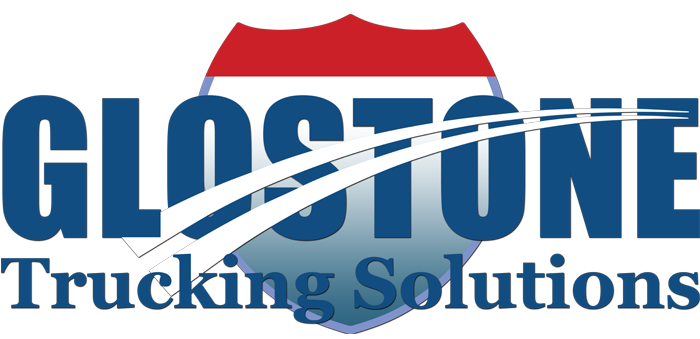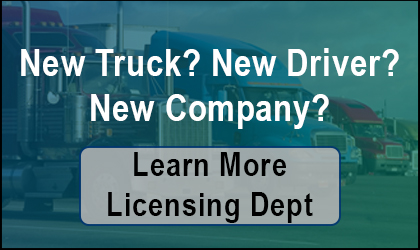May Newsletter Glostone News
posted in Newsletter by Brian Gray
May Newsletter
How Does Your Drug and Alcohol Company Policy Measure Up?
Company policies are designed to communicate business principles expected of employees and what will happen if the policy is broken. This communication helps guide the company to operate in the manner that management wants the company to operate. Well written company policies are also designed to help protect the company from liability by incorporating established safe and ethical procedures into its daily operations. This is especially important in the trucking industry where employees operate in a very safety sensitive environment.
The approach of a well written company policy is generally detailed and may include such things as forbidden behaviors, rights, dispute procedures and consequences of breaking the policy. It will communicate what a person should expect of a company, what a company expects from individuals, and what will happen in events that deviate from the norm.
In most industries, company policies are strictly for each individual business to decide. For the trucking industry, the Department of Transportation (DOT) mandates that carriers have policies written for several key, safety sensitive areas where proper employee behavior is critical.
One such area where a written company policy is mandated is for the misuse of alcohol and controlled substances. Part 382.601 of the Federal Motor Carrier Safety Regulations describes in detail what each trucking company’s drug and alcohol policy must contain. At minimum, a carrier whose drivers meet testing requirements, must have a drug and alcohol policy that includes:
- Educational materials that explain the requirements and the employer’s policies and procedures with respect to meeting these requirements.
- The employer shall ensure that a copy of these materials is distributed to each driver prior to driver driving for the company.
- The materials to be made available to drivers shall include detailed discussion of at least the following:
- The name and contact information of the person designated by the employer to answer driver questions about the drug and alcohol policy.
- The categories of drivers who are subject to these policies.
- Sufficient information about the safety-sensitive functions performed by those drivers to make clear what period of the work day the driver is required to be in compliance.
- Specific information concerning driver conduct that is prohibited.
- The circumstances under which a driver will be tested for alcohol and/or controlled substances, including post-accident testing.
- The procedures that will be used to test for the presence of alcohol and controlled substances.
- The statement that a driver must submit to alcohol and controlled substances tests administered.
- An explanation of what constitutes a refusal to submit to an alcohol or controlled substances test and the consequences.
- The consequences for drivers found to have violated the policy.
- The consequences for drivers found to have an alcohol concentration of 0.02 or greater but less than 0.04;
- Information concerning the effects of alcohol and controlled substances use on an individual’s health, work, and personal life;
- The materials supplied to drivers may also include information on additional employer policies with respect to the use of alcohol or controlled substances. Any such additional policies or consequences must be clearly and obviously described as being in addition to DOT minimums.
- Each employer shall ensure that each driver signs a statement certifying that he or she has received a copy of these materials and will maintain the original of the signed certificate.
No company should conduct drug testing without a policy in place. For trucking companies, a policy is not only mandatory but must contain the minimum requirements. It is imperative that a policy be reviewed by a policy expert at least annually to ensure that it still reflects the company’s objectives and complies with all the state and federal laws. If you need help with your company policies, give us a call at 503-607-1088.
Hauling Loads Into Canada?
10 Things Highway Carriers Need to Know About eManifest
1. With the implementation of eManifest, the Canada Border Services Agency (CBSA) must receive and validate highway carriers’ electronic cargo and conveyance data a minimum of one hour before commercial goods arrive at the border.
2. An informed compliance period is in effect. Regulations to enforce eManifest requirements for highway carriers are expected to be in place in Fall 2013. The CBSA anticipates being able to provide carriers as much as 45 days advance notice of the mandatory compliance date.
3. During the informed compliance period, the CBSA will monitor highway compliance with eManifest and provide feedback to non-compliant carriers.
4. During the informed compliance period, carriers will not be denied entry to Canada or subject to penalties for reasons associated with eManifest non-compliance.
5. In Fall 2013, eManifest highway carrier requirements are expected to be mandatory and non-compliant carriers could be subject to penalties.
6. Highway carriers can choose between two options to transmit their cargo and conveyance data to the CBSA: 1) the eManifest Portal or 2) an Electronic Data Interchange (EDI) method (Value Added Network, Customs Internet Gateway, Direct Connect to the CBSA and Third Party Service Providers).
7. On arrival at the border, drivers are required to present an eManifest lead sheet to the CBSA officer.
8. Release processes will not change with the implementation of eManifest and carriers must continue to provide importers/customs brokers with advance release data/documents for goods being released at first point of arrival.
9. For e-mail support on eManifest policy and processes, as well as eManifest Portal Shared Secret applications, contact the eManifest Help Desk at: eManifest-manifestelectronique@cbsa-asfc.gc.ca
10. For detailed eManifest technical support, contact the eManifest Technical Support Unit:
by e-mail at: TSU.UST@cbsa-asfc.gc.ca
by phone at: 1-888-957-7224 and press 2 (toll-free within Canada and the U.S.)
For more information, visit the eManifest pages of the CBSA Web site at www.cbsa.gc.ca.






